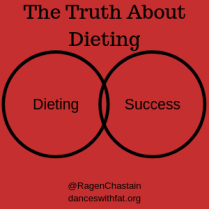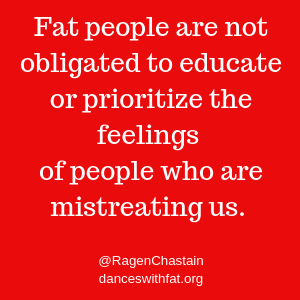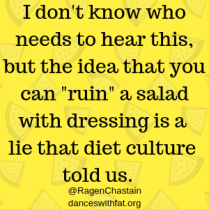by Theresa Jarosz Alberti
I was so angry at my surgeon. He’d finally agreed to operate on me, but his initial refusal to give me total knee replacement surgery had resulted in more than a year of excruciating pain and disability. Facing the upcoming surgery, I knew I needed to let go of my negative feelings before he sliced me open. It was time to focus on positive energy so that I’d be in the best frame of mind to heal.
Over and over again in the weeks before surgery, I thought: I forgive him his ignorance. He doesn’t know me, my strength, my abilities. I’ll show I’m a good candidate for this surgery despite his misgivings. I will be a success.
Meeting Dr. X
I began having trouble with my knees over 10 years ago. Visits to an orthopedic sports doctor for intermittent pain showed I had osteoarthritis. My knee cartilage would gradually wear away and, sooner or later, I’d need knee replacements. Doctors try to hold off surgery until as “later” as you can possibly stand. So I spent years on a gradual path into pain meds, cortisone shots and physical therapy until I was declared “bone on bone” and the pain was debilitating. My orthopedic doctor sent me off to his recommended surgeon.
I was excited at the idea of new knees. Friends had been telling me how much it had changed their lives. Worsening knee pain had been gradually stealing my life away, slowing me down, making me avoid activity. I’m one of those people who actually enjoys exercise, and I was looking forward to being able to get back to weight lifting and spinning classes and Zumba and more.
That day when I met Dr. X in the white-tiled exam room I enthusiastically told him about all the things I’d tried to fix my knees, my history, my motivation to get the surgery, all while he bent and measured my knees, watched me walk down the hall, and looked at my x-rays. I hoped I would get a surgery date soon, and maybe I could even convince him to do both my knees at once. I knew people who’d had that and done well. I wanted to get back to living an active life as soon as possible.
Dr. X had another idea.
He told me that the risks of operating on “overweight” patients go up “exponentially” over a certain BMI. He said that there were risks of complications during surgery, and risks of infection afterwards, up to 10-15% in “obese” patients. These were the statistics I was quoted. However, other surgeons and other studies dispute these numbers. He suggested bariatric surgery to lose weight.
Yes, the reality is that I’m fat. The medical community classifies me by the ugly term “morbidly obese.” I have experienced weight-cycling and an eating disorder for most of my life. Bariatric surgery has been suggested to me by doctors, friends and even strangers, and I admit I nosedive into shame whenever it comes up. I am adamantly opposed to that surgery, for many reasons. Most importantly, I know it wouldn’t work for me because of my eating disorder.
After I explained to him that I was in ED treatment, he nodded and told me in his deadpan voice that he was not going to schedule me for my knee surgery. My heart plummeted — I hadn’t expected this. He said, “I’m not saying I won’t do the surgery, but I want you to go away and work on your health for 3 months.”
What? My ED program is not a weight-loss program, I told him.
“It’s not about losing weight. I want you to show me you’re serious, and that you understand the risks,” he said. “I want you to develop a good relationship with me.”
At this point, I got louder. I was frustrated, angry, unseen, unheard. I didn’t know what he meant by a good relationship with him. I told him I had already been working on all this for a long time. I’m strong and healthy, I exercise, but pain limits me greatly. I’m highly motivated and educated. I wanted knee replacements so I can walk and climb stairs and resume activities and travel. I knew larger people who’d had the surgery and thrived.
But his answer was still no. “I’m going to get second opinions,” I said. He cheerfully provided me with names of colleagues, and then I was out in the hallway, tears stinging my eyes. I’d been denied surgery. Now what?
Now What?
After telling my story on Facebook, I received many personal recommendations for orthopedic surgeons to try. I had an appointment at one of the largest orthopedic practices in our state (with 36 locations). The recommended doctor told me they had a hard line against doing knee replacements for anyone over a certain BMI. None of them would operate on me.
After more humiliating rejections. I was discouraged, hopeless, full of shame, and angry. At this point, I did what I do best in tough times: I went into research mode. I started looking into alternative treatments. How could I move forward when my knee pain was getting worse every day?
What followed was a year-long odyssey into my new full-time job of managing my health care. I’d already stopped working temp jobs because of my pain. Now I spent my days in long Internet searches, calling my health insurance in confusing red-tape loops of information (and often misinformation) about possibilities.
I found out about pain management clinics and went to three different ones. I tried different combinations of pain meds, which never did more than ease my pain minimally. I tried acupuncture and somatic yoga for pain, did water workouts and more physical therapy. I read books on pain management. I got a cane and a handicapped parking tag, since even small amounts of walking hurt. I now experienced limitations in my mobility that impacted nearly every aspect of my daily life… Though I’m immensely privileged to have had my mobility eventually return, I learned a lot during that period about struggles for accessibility through this experience.
I researched stem cell treatments for knees, which sounded great! Could I grow back the cartilage on my knees? Unfortunately, it’s expensive, not covered by insurance, and unproven. Then I found out about radiofrequency ablation (RFA) for knees. By inserting a needle into the knee, a doctor could burn (or freeze) the nerve endings which might give pain relief for months or years. It might enable me to be active again! I enthusiastically researched this possibility, and after many more phone calls, lined myself up to get RFA at the world famous Mayo Clinic. I was really hopeful.
A week before the procedure, I was informed that my insurance wouldn’t cover Mayo Clinic. That was a hard setback, but I arranged for RFA at a pain clinic in my network a few months later. It ended up being a torturous and stressful experience that required me to have four separate sessions with needles being jammed deep into my knees. The worst part was that ultimately, RFA did not give the results I longed for. I was still hurting a lot every day and was moving less. I was sitting on the sidelines of my life.
I found myself at another “Now What?” moment. Even though I was still angry at Dr. X for refusing me surgery, I decided to return to him a year after my first visit. He had left open the possibility of me coming back and I was desperate. I knew I needed knee surgery. Would he now operate on me?
Dr. X Says Yes
I thought I would have to prepare my case and have all my arguments lined up for my appointment with Dr. X, but this one went much more smoothly. He examined my knees and my x-rays, and it was undeniable that everything was worse. I told him about getting RFA and my lack of success with that. He nodded in that non-emotional way of his and told me he’d send in the surgery scheduler. I would get one of my knees done in 2 1/2 months and then we’d see how that one did. If it was successful, I could have the other one done a few months after that. I was so relieved!
It was hard to wait for those last few months. My husband Bob and I prepped for surgery by going to a surgery information session, getting all the suggested equipment (a raised toilet seat, shower chair, walker) and moving our bedroom from the attic to the main floor. I worked with my fear of having this intimidating surgery, doing visualizations of everything going well with excellent healing and recovery. Then I realized I had to forgive Dr. X.
I can’t have this guy cut me open and remove a body part if I’m pissed off at him, I thought. That’s too much negativity. It didn’t come easy, but I internally extended forgiveness to him, welcomed him to my team. He and I were going to make this the best knee surgery ever.
Surgery + Recovery, Rinse and Repeat
I had my right knee replacement on September 4, 2018. Despite all the risk percentages quoted to me, despite my “morbid obesity,” it went extremely well. With Bob’s help, I got through those first tough months (and oh, it is no picnic!) and made steady progress. Bob could see a difference in how I was walking in just a few days. I did lots of physical therapy, and then returned to Dr. X for my 6-week checkup. He was pleased with my results and said I could schedule my other knee replacement. This time I had to wait 3 months for a surgery date. Having one knee done had made a big difference, but my left knee was still in pain. I was eager to get this surgery done.
I had my left knee replacement at the end of January, almost 5 months after my first surgery. Again, it went extremely well, and then I had to get through the arduous reality of recovery, this time, snowbound in February. It was hard, but I was so happy to have the surgeries behind me, to be on the road to feeling and moving better.
But I was not done with Dr. X yet. Ever since my first surgery, I’d had an idea brewing. I wanted to talk to Dr. X at my next 6-week checkup about his initial refusal to operate on me in 2017. I’d learned so much in the last few years on this journey of pain and disability and my struggles with the medical system. I’d been doing research on medical bias and updated studies on knee replacements for fat people. I was nervous to talk to him about this, especially with his rather stiff social demeanor. How would he react? He might be angry or dismissive. I knew I had to speak up about this though, if only for myself. Deep breath!
The Big Talk
I was back in the white-tiled exam room for the umpteenth time, my heart beating fast. I was scared but ready. Dr. X walked in and smiled and declared my knees a success. Then it was time…
I want to thank you for doing such an excellent job on my knees! We’re a team, and I couldn’t have done it without you. But I also want to tell you that I believe I suffered needlessly for over a year because you refused to operate on me because of my weight. Despite all the risks you told me about, I’m a success, and having these new knees is making such a huge difference in the quality of my life. I hope that the next time a fat person comes into your office, you will use ME as an example, and look at the whole health of an individual as you assess them for surgery. I’m healthy, I’m motivated and I’ve gone through other surgeries, so I was a good candidate for this surgery. I know doctors want to help people, and you could do so much good for people by not making them go through what I did. So many fat people avoid going to see doctors because they feel ashamed and humiliated by how they are treated.
I then told him I’d made a resource sheet of websites, books and articles related to what I was talking about, if he was interested. Then I held my breath awaiting his response.
To my surprise, he listened thoughtfully and thanked me. He told me he would use me as an example when other fat people come into his office. He took the resource sheet and said he had a resource for me I might be interested in, and asked if I would send him a copy of my sheet by email so that he could share it with others. I was flabbergasted! This did not seem like the same doctor who had first refused to operate on me.
I was overjoyed! This had gone much better than I ever could have expected. He smiled at me and we shook hands. I walked out of that office and into the lobby and did a victory fist-pump, then called Bob, happy and tearful, with my good news.
I’d advocated for myself and for others who might be denied surgery, and I’d been heard. Maybe someone else would be helped because of me. Maybe others wouldn’t have to go through the suffering and humiliation I’d experienced.
The last few years have been a huge learning experience for me about so many things: our medical and health insurance systems, fatphobia in the medical community, what it’s like to live with a disability or chronic pain (which is a blog post for another day) , and how to fight for what you need. It’s now been 1 year since my first surgery and 7 months since my second surgery, and I’m still recovering. I’m not in constant pain anymore, I’m able to do so many things I couldn’t for quite awhile, and I’m so grateful. There were a lot of things I took for granted about health and my body for so long, and now I know how precious those are.
For anyone else out there suffering needlessly because you’ve been denied treatment based on your weight, keep fighting and looking. There are doctors who will operate on fat bodies. Our diet mentality culture breeds all sorts of misinformation, and you can pursue healthy behaviors at any size. You deserve to get help to live a pain-free life. Fight against the useless shame.
I’m so glad I did. I love my new knees!

Theresa Jarosz Alberti is a writer, blogger, artist, and creator living in Minneapolis, Minnesota. She writes all kinds of things, including seven books of children’s nonfiction and a book of poetry. You can find her online at http://penandmoon.com.
via healthateverysizeblog https://ift.tt/2q5ofU7
 As the whole Kurbo disaster has unfolded (in case you missed it, Weight Watchers – aka WW [insert eye roll here] decided that their best move was to
As the whole Kurbo disaster has unfolded (in case you missed it, Weight Watchers – aka WW [insert eye roll here] decided that their best move was to  On Saturday Julianne and I headed to
On Saturday Julianne and I headed to 
 Fat people didn’t even fully get out our half-hearted this-is-still-hella-problematic cheer of Victoria’s Secret’s choice to (fricking finally) hire a plus-size model. Because the model they hired, Ali Tate Cutler, once hijacked a fat activist’s Facebook page to declare that fat people shouldn’t be allowed to live because we’re bad for the environment. I wrote about this in 2016, and I thought today would be a good day to revisit it (with thanks to
Fat people didn’t even fully get out our half-hearted this-is-still-hella-problematic cheer of Victoria’s Secret’s choice to (fricking finally) hire a plus-size model. Because the model they hired, Ali Tate Cutler, once hijacked a fat activist’s Facebook page to declare that fat people shouldn’t be allowed to live because we’re bad for the environment. I wrote about this in 2016, and I thought today would be a good day to revisit it (with thanks to  Fat people are taught early and often that we should have low standards, and low expectations. We’re supposed to be ok with a limited selection of clothes that are much more expensive than what thin people can get. We’re supposed to be happy that anyone would hire us over a less-qualified but thinner applicant, and not complain that we’re being
Fat people are taught early and often that we should have low standards, and low expectations. We’re supposed to be ok with a limited selection of clothes that are much more expensive than what thin people can get. We’re supposed to be happy that anyone would hire us over a less-qualified but thinner applicant, and not complain that we’re being  This post was inspired by the amazing Naomi Finklestein, an anti-diet coach at
This post was inspired by the amazing Naomi Finklestein, an anti-diet coach at  This has come up in several conversations lately, so I thought it was a good time to update and repost this. Trigger warning: I’m going to write about food, and about diet culture messages about food.
This has come up in several conversations lately, so I thought it was a good time to update and repost this. Trigger warning: I’m going to write about food, and about diet culture messages about food.

